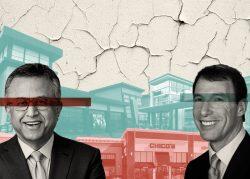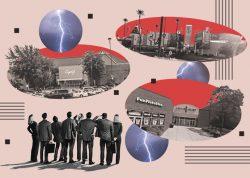New data on United States mall values are the latest sign of how far the once-glorious retail centers have fallen.
Malls have lost a third of their value in the past four years, according to Green Street data reported by Bisnow. Class-B and Class-C regional malls reportedly suffered the greatest value declines.
The findings are similar to a Fitch Ratings report in June that said valuations of CMBS specially serviced retail-associated loans dropped 34 percent from the start of the pandemic, Bisnow noted.
Mall values declined 60 percent in appraisals in 2020, according to Bloomberg analysis reported in March. Across 118 shopping centers with CMBS loans, nearly $4 billion was lost due to delinquencies, defaults or foreclosures.
The grim state of among U.S. malls does not appear to include strip centers, however. Though the properties pale in comparison to increased interest in sectors including self-storage and industrial, Bisnow reported strip centers’ values have increased by nearly 5 percent since a 2016 peak and 13 percent since the start of the pandemic, per Green Street data.
Read more


The lower valuations come as a slew of mall owners have retreated from the struggling properties. Green Street data show 20 malls have been relinquished to lenders since the onset of the pandemic.
In 2020, five malls braced themselves as valuations dropped by more than 75 percent. Crystal Mall in Waterford, Connecticut, was hit hardest as its valuation was slashed by 88 percent, forcing the Simon Property Group to hand the keys to its lender after defaulting on an $83 million loan, per Trepp.
Meanwhile, three of the country’s largest mall landlords went into bankruptcy during the pandemic.
Pennsylvania REIT spent about a month in bankruptcy, reorganized and took $150 million in additional debt while pushing back maturity dates. CBL spent about a year in Chapter 11 before reducing debt by about $1.7 billion by handing over ownership to bondholders and exiting bankruptcy.
Washington Prime Group saw the biggest changes as it was taken over by distressed debt investor Victor Khosla’s Strategic Value Partners before its CEO stepped down and the firm de-listed the company from the New York Stock Exchange.
[Bisnow] — Holden Walter-Warner
